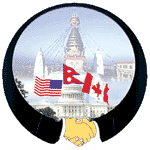 After last year's conference in Washington DC, the Bipalis-bidesi Nepalis-in the Americas are looking forward to their annual jamboree, this time at Denver. Organised under the auspices of the Association of Nepalis in Americas (ANA), this is the highlight on many calendars.
After last year's conference in Washington DC, the Bipalis-bidesi Nepalis-in the Americas are looking forward to their annual jamboree, this time at Denver. Organised under the auspices of the Association of Nepalis in Americas (ANA), this is the highlight on many calendars. As the rate of Nepali immigration to the Americas grew in the last few decades, a diverse populace of Bipalis came into being, encompassing everyone from gas station attendants to software engineers. With only tenuous links to the motherland, finding common ground for them to relate to each other became increasingly difficult till the ANA was formed in 1983. This umbrella organisation is a forum to network and reaffirm a shared socio-cultural experience for an estimated 60,000 Nepalis in the United States, Canada and other nations in the American continent.
Despite the ANA's good intentions, it is practically impossible to cater to the needs of all Bipalis, which has given rise to a plethora of smaller organisations within the ANA. Unfortunately, the Beed has noted you can take a Nepali out of the country but you can't shake them out of the old ways: in this case, too many factions have led to squabbles and power struggles.
For the most part, Bipalis are patriotic and proud of their identity. Our rate of application for US citizenship is relatively low. Of course this could stem from the fact that US citizenship means forfeiting Nepal's, therefore cancelling property and ownership rights in the latter. Dual citizenship must be made possible. In our context it would be an economic and not a political issue. A floodgate of funds and opportunities can be channelled from the economic North. The Nepali government should look into the matter of dual citizenship on a country-to-country basis, beginning with the US.
Our basic outlook has to change. Professionals of Nepali origin working in the US are beginning to network informally amongst themselves. The Chalphal group in Boston is a good example. The time has come for Bipalis to realise they wield substantial potential to form a pool of human, intellectual and financial resources to be leveraged both in their adopted and native homes. Instead of executive committees ad nauseam, might the Beed suggest an informal guthi type network, with a rotation of leaders so nobody feels short-changed? That way, at Denver we can get together and get down to business that benefits both Bipalis and Nepalis too.
Readers can post their comments or suggestions to [email protected]



